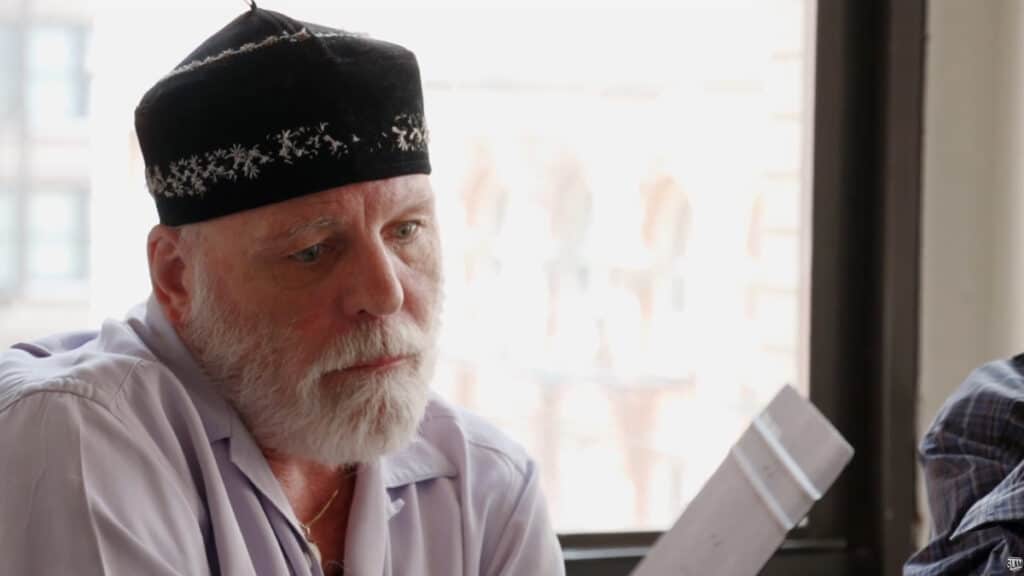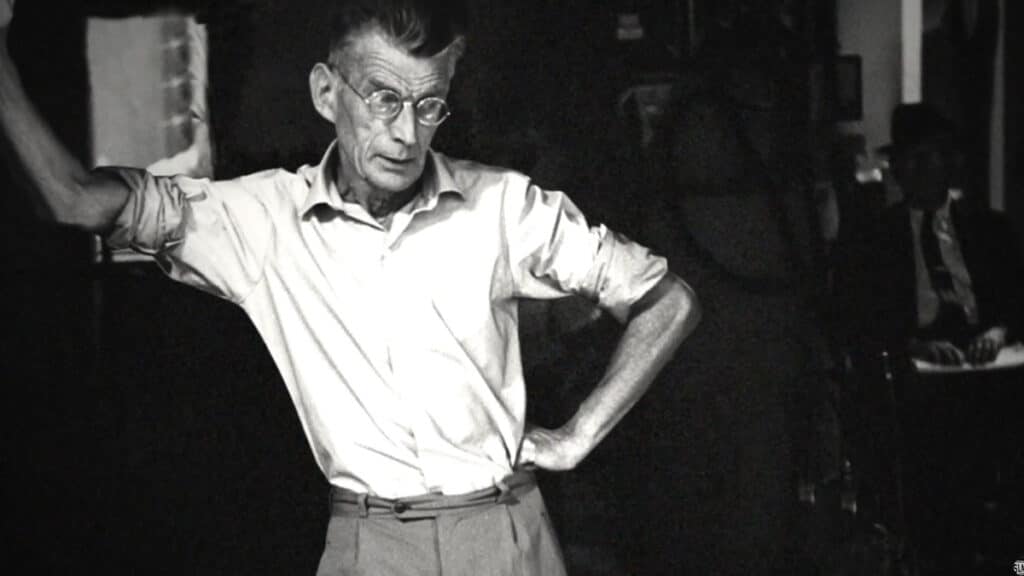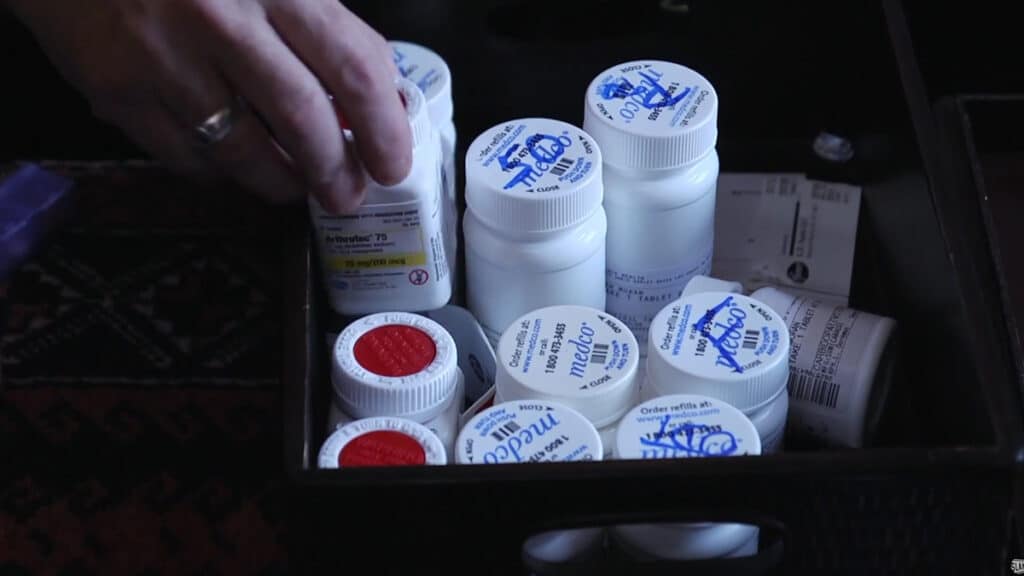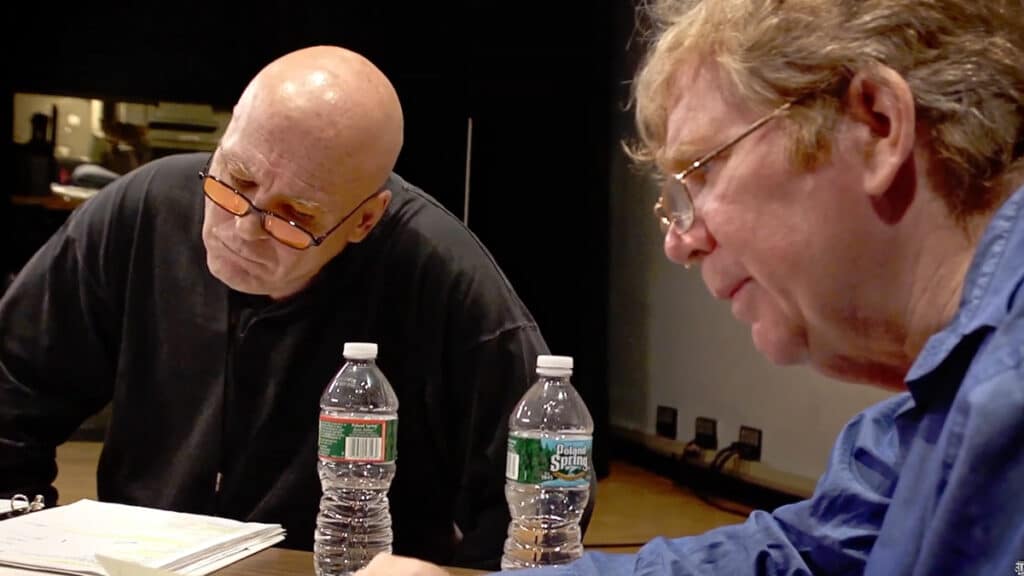Slamdance 2021 Review: Me to Play
Me to Play (2021) is an American documentary film. It was directed by Jim Bernfield.

Me to Play documents the story of two actors on the New York theater scene who wish to put up a production of Endgame, a play written by theatrical luminary Samuel Beckett. The actors are Dan Moran, and John Christopher Jones. In addition to both being seasoned actors who now have careers acting on stage in Manhattan, both actors are suffering from Parkinson’s disease.
Endgame, in some capacity, is a production that deals with Parkinson’s disease, and the way it affects those who have it. I’m not familiar with the play myself, but this is what I was able to glean from the film itself. Apparently, Beckett’s mother was afflicted with Parkinson’s, and Endgame is a personal piece of work on the subject.

Both Moran and Jones are seasoned actors, who are staring down the barrel of eternity. Parkinson’s is a disease for which there is no cure. At least not yet. It is a debilitating condition that advances with the passage of time. There are medications and treatments available to help with the symptoms, and to help manage the condition. But right now, Parkinson’s is a one-way-trip as far as medicine is concerned.
It is a degenerative condition that affects both the body and mind. Being an actor, particularly the on-stage kind, requires both to successfully perform the task. Moran and Jones have had the disease for long enough now that they both experience constant symptoms, their condition as much an impediment to their profession as it is to their daily existence.
By no means are either of the two ready to retire, however they are both facing the possibility that they may have no other choice before too long. Together, the two decide to put up a performance of Endgame, as a personal statement, in addition to a possible final curtain call. Me to Play is the story not only of Dan and Chris, but also of their quest to successfully execute their performance of Endgame.

Me to Play is a pretty sad movie. Not that there aren’t moments of laughter, joy, triumph, and sweetness. There definitely are. However, they are constantly surrounded by the dour gloom of impending mortality, and the eventual unpleasantness that is commensurate with succumbing Parkinson’s. So even when it’s sweet, it’s bittersweet.
It is also a bit of a rollercoaster ride. The two actors both fluctuate between severe and not-so-severe symptoms. Consequently there are times when the viewer will seriously question if these two will be able to pull it off in the end. In this way the film is actually somewhat dramatic. But once again, even in their better moments, the writing is totally on the wall.
The film also delves into what the Parkinson’s experience is like for the loved ones; the wives and children who were once merely family, but now have become caretakers as well. Parkinson’s is a disease that impacts more than just those who are afflicted by it. We hear candid tales of the toll that the disease takes on those around the sufferer, as it rages on. This adds to the sadness of the film, because this disease absolutely sucks for everyone involved.

On the less-sad side, the film is something of a tribute to these two actors, neither one of whom would have likely achieved the kind of recognition Me to Play will bring them, had they not had such an unfortunate condition. I don’t mean to suggest that these men aren’t good actors, or that they have had careers that floundered. On the contrary, they both have a decent body of work on their resume.
However, neither one was ever a leading man type. They were both character actors. And as well all know, as depressing and disappointing as it can be, far too many great character actors never get their due. Although Me to Play is by no means a career-spanning retrospective, it does immortalize these two thespians in a way they might not otherwise have been immortalized. So that’s nice.
The film is also a bit of a tribute to the indomitable nature of the human spirit. A lot of people in the situation that these two men find themselves in would likely throw in the towel. Or even if they didn’t throw in the towel themselves, they might not have as strong a support system as these two have, and might be dissuaded from continuing to pursue work in light of their condition. But Chris and Don have zero quit in them. They love their craft, and come Hell or high water, they are going to put this thing up, physical limitations be damned. So ultimately, the film is fairly optimistic, even with the sadness constantly looming in the wings.

To be honest, the pervading sadness of the film might have been enhanced by my own personal bleak worldview. Others who aren’t as prone to the kind of glass-is-half-empty thinking as I am might not find the proceedings quite as funereal as I did.
Me to Play is an intimate portrait of two cowboys trying to beat the clock and ride into the sunset as gracefully as possible, and to do it their way. I wasn’t devastated or weeping by the end of it, but I was moved. This film will have particular resonance for those who also have loved ones suffering from Parkinson’s, and may even be inspiring to those suffering from it themselves. Even at a short hour and ten minutes, it might get tedious for some at some points. But overall, a solid doc, and a nice tribute to two actors that are willing to give it all for their art.
Review
Rating
RN Review of Me to Play
Me to Play is an intimate portrait of two cowboys trying to beat the clock and ride into the sunset as gracefully as possible, and to do it their way.



